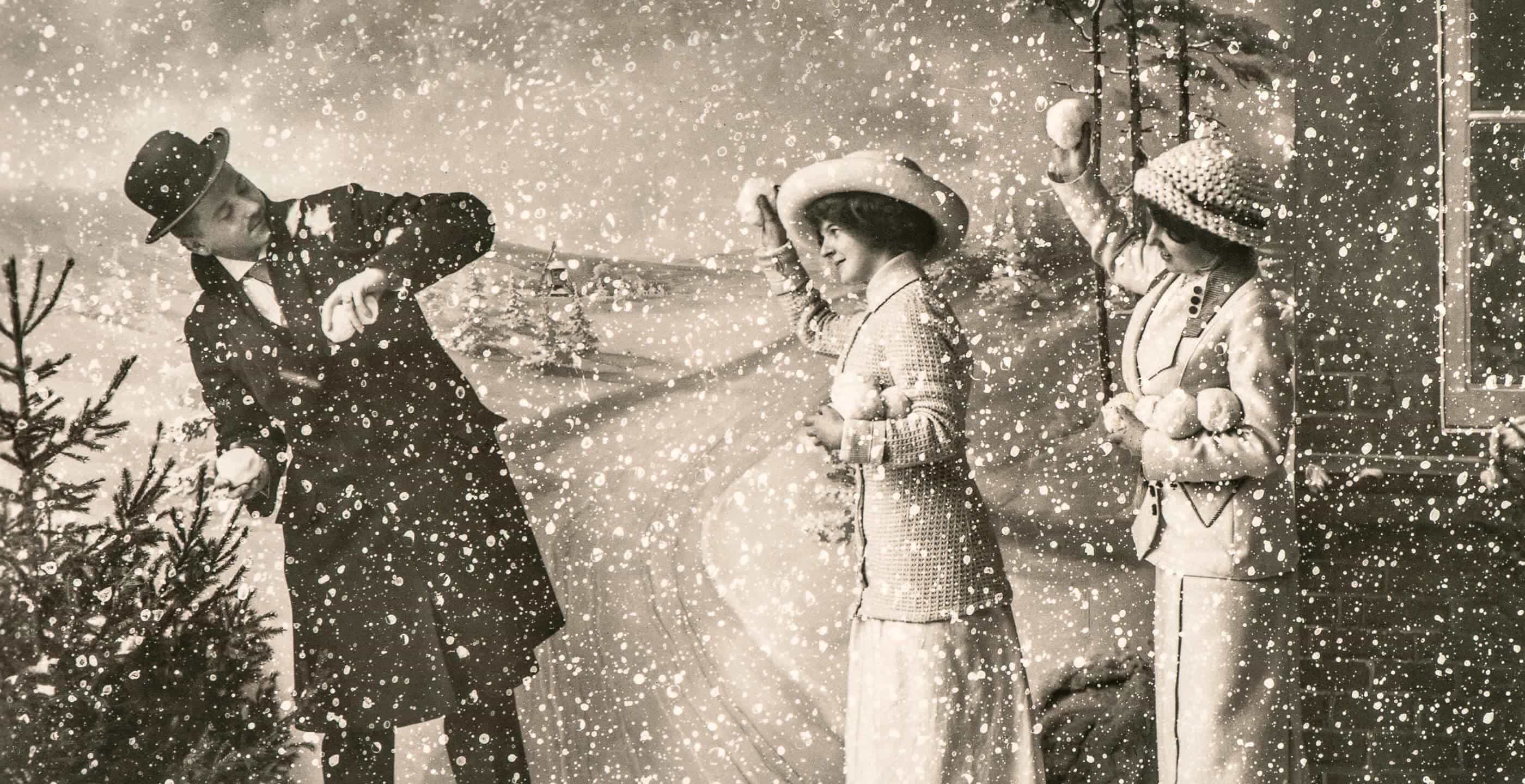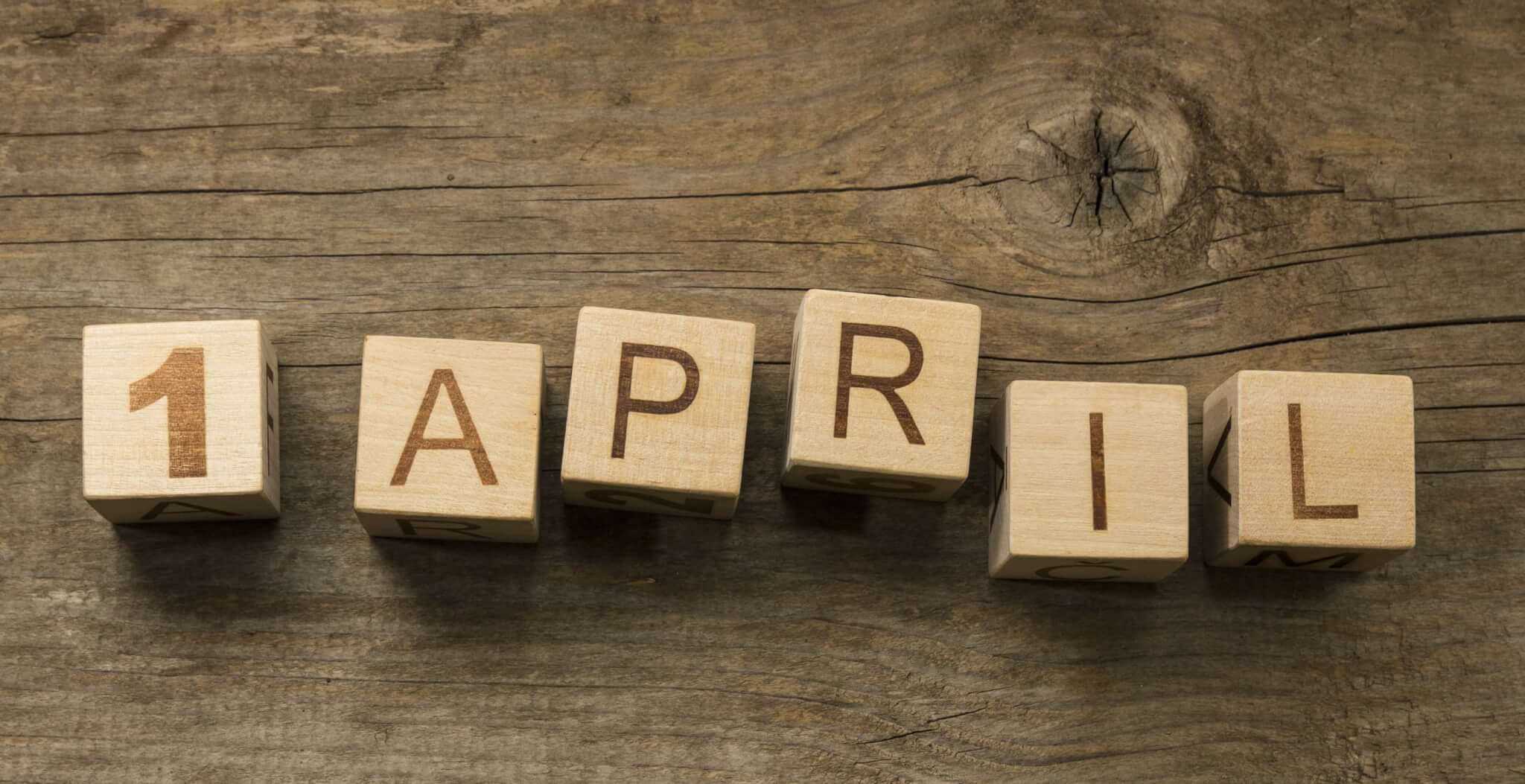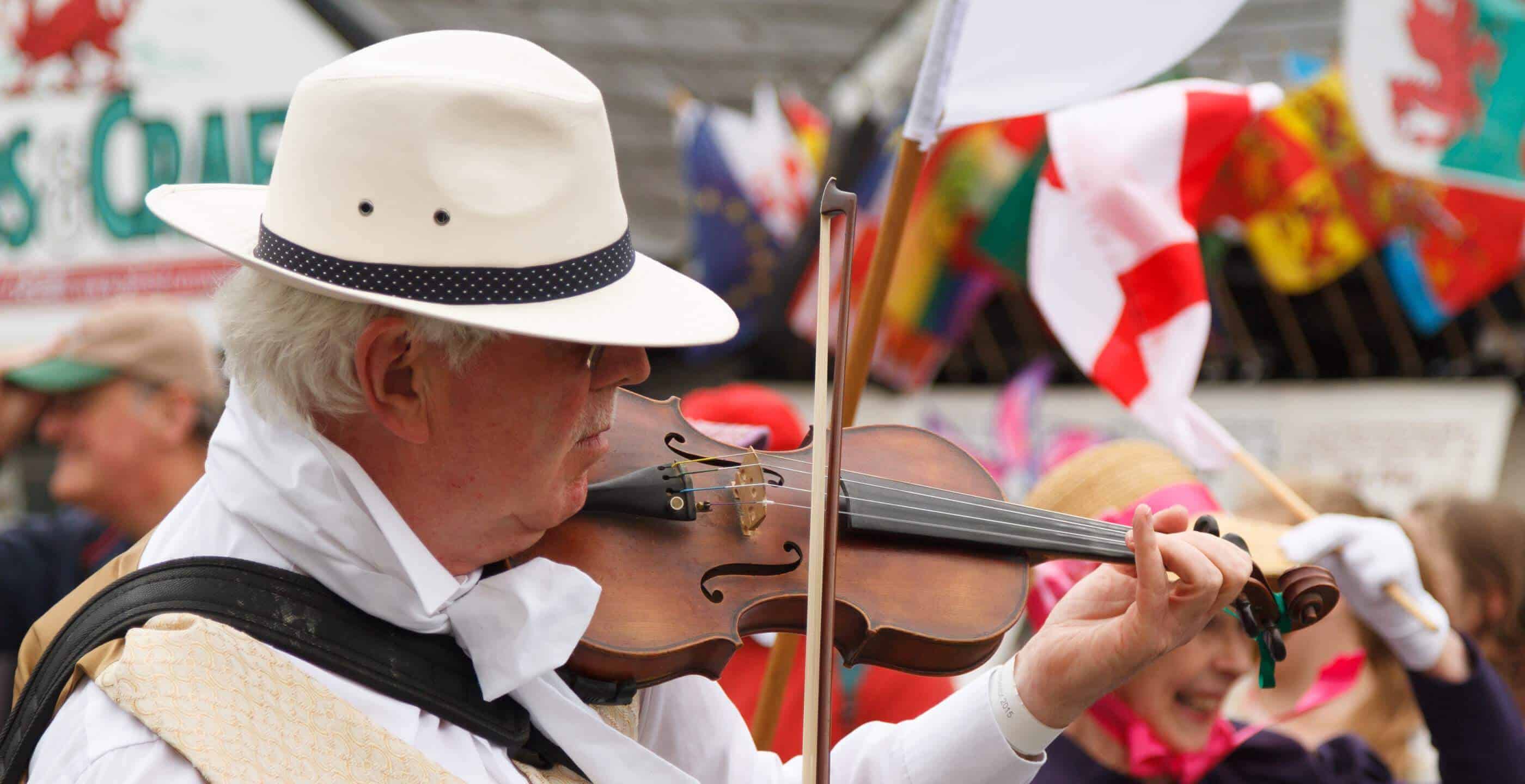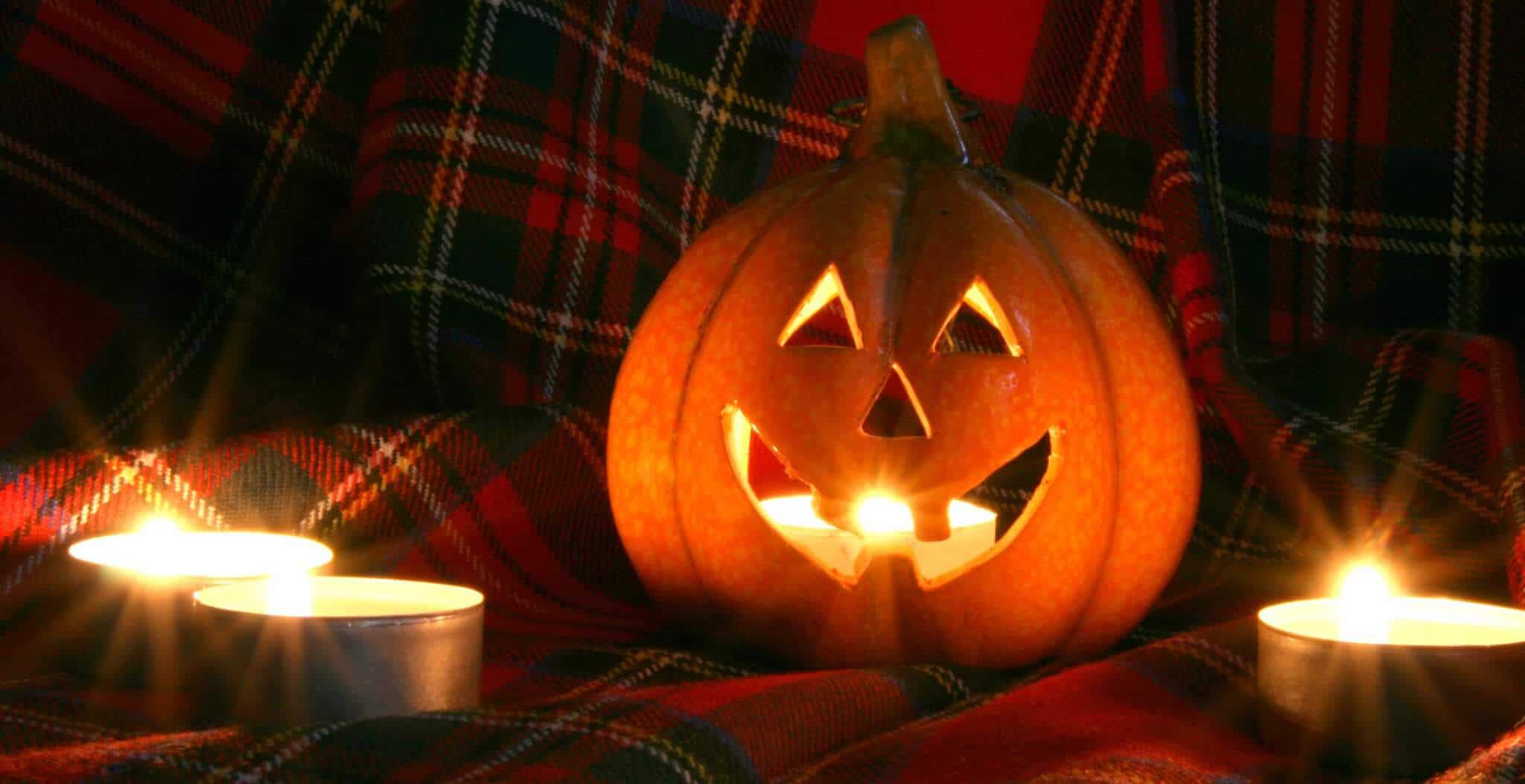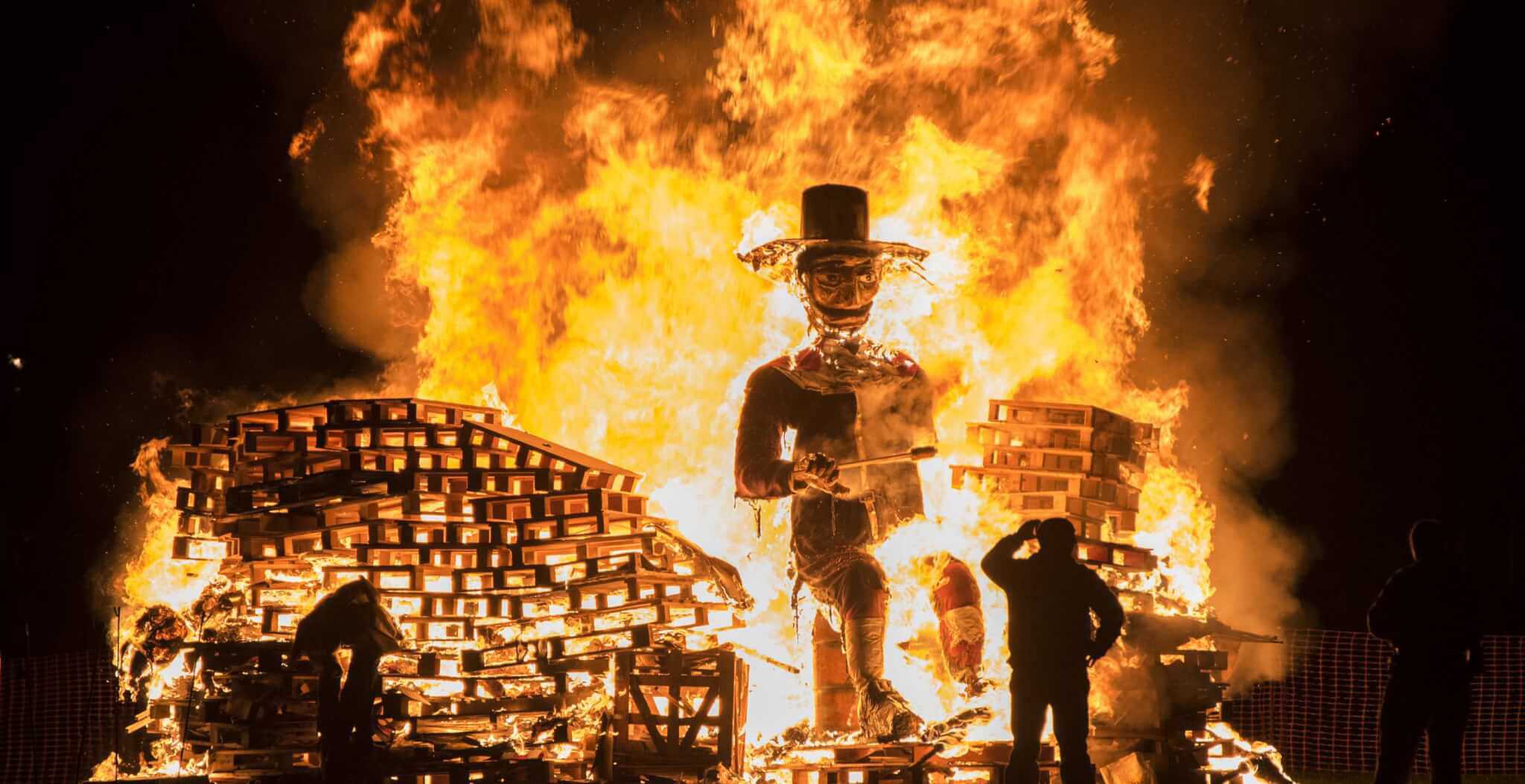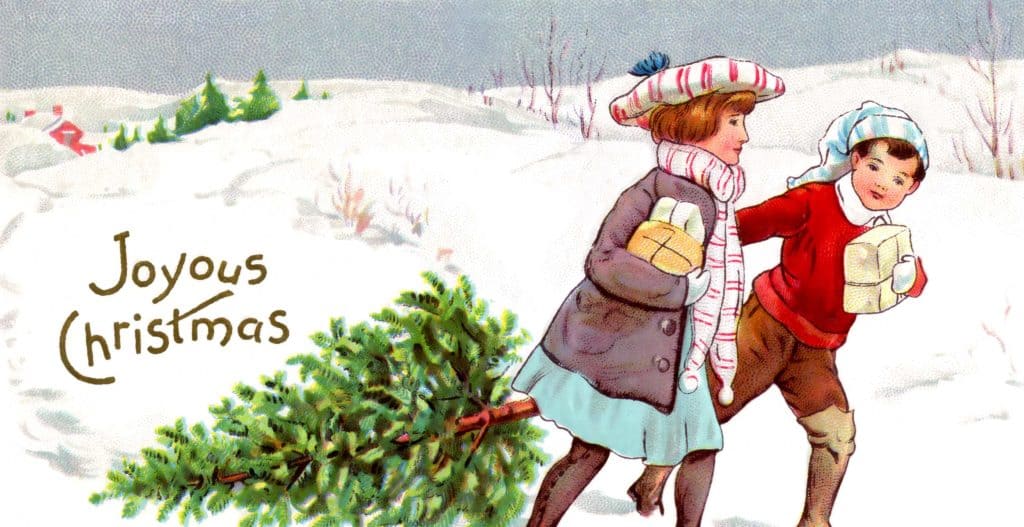Here you will find articles and features about seasonal celebrations around the UK, such as the customs for celebrating Christmas and New Year, Easter and May Day, to name but a few!
An Anglo-Saxon Christmas
How was Christmas celebrated in the early medieval period? Christmas is, after all, an Anglo-Saxon word – Cristesmæsse, a word first recorded in 1038…
A Medieval Christmas
Some well known modern Christmas traditions have their roots in medieval times…
A Tudor Christmas
The twelve days of Christmas would have been a most welcome break for the workers on the land, which in Tudor times would have been the majority of the people. All work, except for looking after the animals, would stop, restarting again on Plough Monday, the first Monday after Twelfth Night. For the gentry, Christmas was a time for serious feasting….
A Puritan Christmas Under Cromwell
It is a common myth that Oliver Cromwell cancelled Christmas: it was the deeply religious Parliament who voted to abolish the ‘popish’ celebration of Christmas…
A Georgian Christmas
How was Christmas celebrated in Georgian and Regency times? We consult Jane Austen…
A Victorian Christmas
Christmas trees, carol singers, Christmas cards, Santa Claus…We can thank the Victorians for many of our Christmas traditions today…
A 1940s Christmas
What was it like to celebrate Christmas in wartime?
A 1960s Christmas
What was it like to celebrate Christmas in the Swinging Sixties?
Christmas Traditions in Wales
Including the unique Boxing Day custom of beating young girls with boughs of holly…
Christmas Crackers
All over Britain on Christmas Day, families can be found sitting around their dining tables enjoying a traditional lunch of roast turkey with all the trimmings – and all, regardless of age, wearing coloured paper hats. So why this quaint tradition? Where do these paper hats come from? The answer is the Christmas Cracker….
Mince Pies
One of the favourite sweet treats at Christmas is the mince pie. This crumbly pastry is filled with fruit, often soaked in brandy and flavoured with citrus and mild spice. However the mince pie was originally a savoury pie – and not even round!
The Christmas Tree
One of the main symbols of Christmas is the Christmas tree. It can be large or small, indoors or outdoors, traditional or modern…
New Year’s Eve Celebrations in Scotland: Hogmanay
Only one nation in the world can celebrate the New Year or Hogmanay with such revelry and passion – the Scots! But what are the actual origins of Hogmanay, and why should a tall dark stranger be a welcome visitor after midnight?
Robert “Rabbie” Burns Burns Night – January 25th
Robert Burns is the best loved Scottish poet, admired not only for his verse and great love-songs, but also for his character and wit, his high spirits, ‘kirk-defying’, hard drinking and womanising!
St Dwynwen St Dwynwen’s Day
St Dwynwen is the Welsh patron saint of lovers, which makes her the Welsh equivalent of St Valentine……
February 29th – or bachelors beware!
Leap years are very special years, and the 29th February itself is an especially important day……
Pancake Day (Shrove Tuesday)
Large numbers of people, often in fancy dress, racing down streets tossing pancakes…yes, it’s Pancake Day again!
Kissing Friday
The Friday after Shrove Tuesday and Ash Wednesday is Kissing Friday. Kissing Friday? That sounds odd…
Easter Customs and Festivals
Egg rolling, morris dancing, pace-egging, bottle kicking and the nutters dance….
May Day in Merrie Olde England
Down through the centuries May Day has been associated with fun, revelry and perhaps most important of all, fertility……
Michaelmas – 29th September
Michaelmas, or the Feast of Michael and All Angels, is celebrated on the 29th of September every year. As it falls near the equinox, the day is associated with the beginning of autumn and the shortening of days…
Halloween
Halloween or Hallowe’en is celebrated across the world on the night of 31st October. Modern celebrations generally involve groups of children dressed in scary costumes roaming from house to house, demanding “trick-or-treat”. The origins of these celebrations however date back thousands of years, to pagan times……
Remember, Remember the 5th of November…. Bonfire Night
Why do the British celebrate with fireworks, bonfires – and set fire to ‘Guy’?
Martinmas
St Martin’s Day or Martinmas falls on November 11th and was traditionally celebrated with feasting as it also marked the end of autumn. According to folklore, if it is warm at Martinmas, then a harsh winter will follow…
The Feast and Fast of Traditional Advent.
At this time of year many people around Britain are carefully opening tiny windows on Advent calendars to reveal little treats as they count down to Christmas. But what are the origins of Advent?
St Nicholas Day
Have you ever wondered why people hang stockings up by the fireplace on Christmas Eve for Father Christmas (or Santa Claus) to fill with small gifts and goodies? Children all over the world have St Nicholas to thank for this custom, although those who celebrate his feast day receive their treats on December 6th (St Nicholas Day) rather than Christmas Eve.
